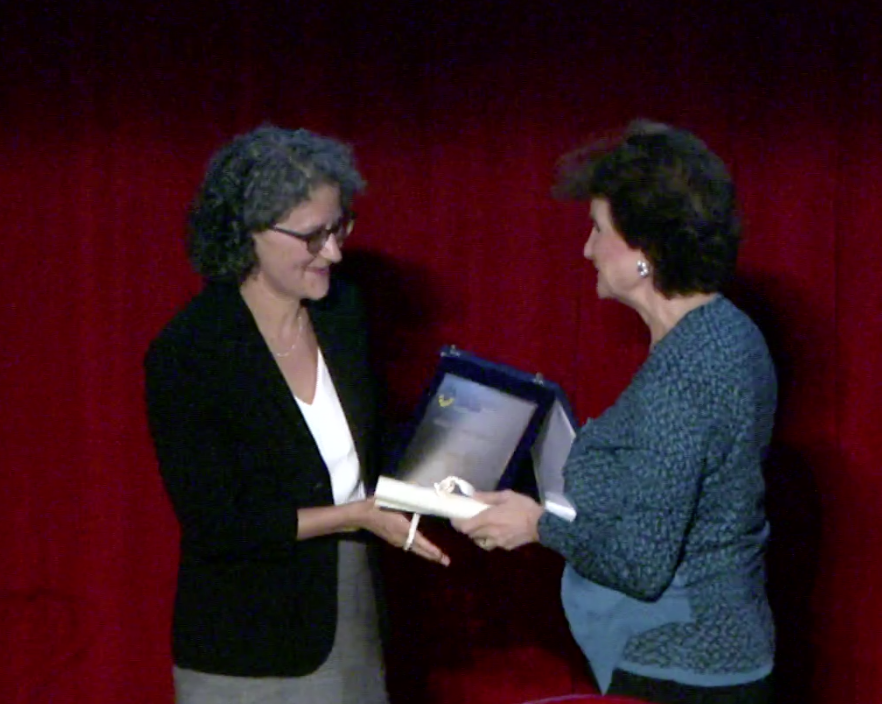
To mark the 25th anniversary of the Maruzza Foundation, we met up those who have shared some of the milestones of our journey.
The third in the series of interviews ‘The Foundation’s 25th anniversary’, which began with conversations with Senator Livia Turco and Monsignor Vincenzo Paglia, is dedicated to Professor Joanne Wolfe, currently Physician in Chief of Pediatrics at Massachusetts General Hospital, and Professor of Pediatrics at Harvard Medical School in the USA and considered one of the World’s leading experts on PPC.
Q1. Our first meeting, almost a decade ago, represented a landmark moment for the Maruzza Foundation and the development of Palliative Care for Children at an International level. Could you tell us about your memories of this initial encounter?
When I arrived at the first Maruzza International Congress on Palliative Care for Children, I felt like I found my professional family, though I hadn’t realized that I had so many international relatives! At that time, each one of us was working in relative isolation, striving to improve the wellbeing of seriously ill children and their families. It was at times lonely and frustrating, especially because of the slow pace of progress. Being together with like-minded, passionate individuals was simply inspiring! We learned so much from one another and made lasting connections that fostered international collaborations and friendships. Since that very first meeting I have had the privilege of working with colleagues from every continent, except Antartica. I am now so hopeful that together we are making great strides. What a tremendous gift to have brought us all together. Thank you Silvia and the Maruzza Foundation!
Q2. You have accepted our invitation to participate as Keynote Speaker at the sixth edition of the Maruzza International Congress on PPC. could you tell us about your hopes, expectations and also your concerns regarding the provision of child-specific palliative care in the near and distant future?
I have attended every congress except one which coincided with an important family event. Each experience leaves me rejuvenated and reinvigorated in my commitment to advancing pediatric palliative care, and I fully expect this one to be no different. I look forward to renewing connections and forging new ones. I continue to worry about how we will achieve the goal of eradicating suffering in children and their families. We face clinical, educational, investigational and advocacy barriers. Yet, I am confident that through the community that the Maruzza Foundation has built, we will prevail.
Q3. Could you tell us what originally drew you to work in Palliative Care for Children?
During my training in pediatric hematology/oncology, I witnessed immense distress in both children and their families. The care of children with advanced cancer, especially at the end of life, was often chaotic and unanticipated. I vividly remember a night on call when a young boy with advanced neuroblastoma was cradled by his mother, screaming in pain while she begged for his relief. As a trainee, I was alone with the nurses—there were no senior physicians present, no anticipatory guidance, and no protocols for effectively titrating medications. I had received no formal teaching on best practices, nor were there empiric data to guide us. I felt desperate to ease their suffering.
Thankfully, I was working with highly experienced nurses who offered guidance, and together we stayed by the bedside for hours until the child found comfort. Sadly, I can recall several other similar situations. These experiences made me realize that as a healthcare community, we had to do much better. This realization set me on a path to create change.
Q4.To conclude, what would be your message to young healthcare professionals who are considering or have already chosen to work in this rewarding yet very challenging sector of healthcare?
It goes without saying that a career in pediatric palliative care is immensely rewarding. While the intellectual and emotional challenges are significant, you are never alone—you face them alongside interprofessional colleagues as part of a team. Making a difference in the lives of seriously ill children and their families is deeply gratifying. Perhaps the best kept secret is that the lessons learned seep into your personal wellbeing. Bearing witness to suffering and its relief has the unintended consequence of offering personal gifts, including perspective, solace and joy.
